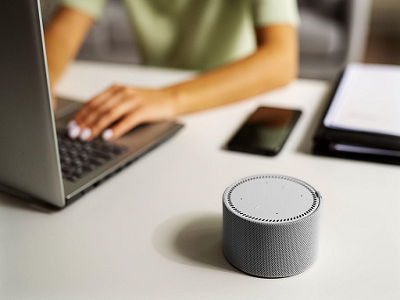
There was a time when sharing music meant passing around wired headphones or turning up a bulky stereo. Now, the same social ritual fits in the palm of your hand. From picnics to pool parties, Portable Bluetooth Speakers have transformed how we experience and share sound. They are not just gadgets; they are cultural symbols of connection, spontaneity, and a lifestyle that moves with rhythm.
The Rise of a Portable Sound Culture
In today’s fast-moving world, music has become an essential part of our identity. We curate playlists the way people once curated photo albums. Yet, this obsession with mobility did not happen overnight. It evolved alongside advances in wireless technology and changing social habits.
When Bluetooth technology arrived, it quietly disrupted how we connected devices. At first, it seemed like a simple convenience, no more tangled wires. But soon, that small shift unlocked a new way to experience sound: freely, anywhere, with anyone. The emergence of Portable Bluetooth Speakers took that promise and amplified it, literally and figuratively.
Before long, music escaped the confines of living rooms and car stereos. It started echoing from backpacks, bicycles, and beach towels. Sound became social, spontaneous, and mobile, perfectly reflecting the modern lifestyle.
Mobility Meets Music: A Perfect Match
Mobility defines modern life. We move through cities, jobs, and social spaces with constant connectivity. Music has followed this rhythm of movement, adapting to our pace. The portability of sound devices fits naturally into the way we live today, fast, flexible, and on demand.
Portable Bluetooth Speakers became companions for people who value freedom. Whether you’re hiking in the mountains or hosting a rooftop dinner, they deliver instant atmosphere. They make any place feel like home, or at least like a good time. This portability has redefined what it means to “own” sound; it’s no longer tied to a room but to a moment.
However, mobility is not just physical. It’s also emotional. A portable speaker lets us carry memories, moods, and motivations wherever we go. You can relive a summer night through a playlist or set the tone for a morning jog. In a world that often feels disconnected, sound becomes a thread of continuity.
The Social Soundtrack: How Shared Listening Evolved
Remember when mixtapes were love letters? Today, Bluetooth speakers are how we share affection, energy, and culture. The ritual of shared listening has evolved, but the sentiment remains. Music still brings people together; it just travels with us more easily now.
Portable Bluetooth Speakers encourage communal experiences. They transform personal playlists into collective events. At a barbecue, one tap turns an idle afternoon into a dance floor. At a campsite, it sets the rhythm of conversation. The speaker becomes a social bridge, erasing barriers between devices and people.
Interestingly, this shift mirrors the broader digital culture of sharing. We post, stream, and broadcast constantly, and portable speakers extend that habit into the physical world. The act of playing music out loud is a small declaration: this is who I am right now. In that way, sound becomes an identity statement.
Design, Fashion, and the Aesthetics of Sound
Technology today is rarely just functional. It must look good, fit our style, and reflect our personality. Portable Bluetooth Speakers have followed that trend, evolving from utilitarian gadgets into lifestyle accessories. Their designs echo fashion sensibilities, sleek lines, bold colors, and rugged finishes for outdoor adventurers.
Brands now compete not only on sound quality but also on aesthetics. Some look like art pieces; others like futuristic soda cans. The goal is the same, to blend seamlessly into modern life. A speaker on a coffee table can say as much about its owner as the books beside it.
This aesthetic evolution signals something deeper. Technology has become an extension of self-expression. Owning a portable speaker is not just about playing music; it’s about projecting a mood, a style, even a social statement.
Tech Dependency: The Invisible Beat Behind the Music
It’s impossible to talk about modern listening habits without acknowledging our growing dependency on technology. We rely on smartphones for communication, navigation, and now, emotional regulation through sound. Portable Bluetooth Speakers sit at the intersection of that dependency and delight.
On one hand, they embody freedom. On the other, they deepen our reliance on devices. Our playlists are stored in the cloud, our speakers depend on wireless connectivity, and our sense of calm often depends on pressing play. The irony is striking: the more wireless we become, the more tethered we are to technology.
Still, this dependency isn’t entirely negative. It reflects how seamlessly technology integrates into human life. Music has always adapted to its medium, vinyl, cassette, CD, MP3. The speaker is just the latest vessel. What matters is not the tool but the feeling it delivers.
The Democratic Nature of Sound
There’s something beautifully democratic about Portable Bluetooth Speakers. They make quality sound accessible to almost everyone. Gone are the days when enjoying rich audio required an expensive stereo setup. Today, anyone can carry concert-level clarity in their backpack.
This accessibility also fuels cultural exchange. People can share regional music, niche genres, and personal discoveries instantly. The portability of speakers breaks down geographical and economic barriers. It turns public spaces into pop-up concert halls and private moments into shared joy.
In that sense, portable sound devices contribute to a global conversation. They help spread not just music, but culture. Every street performance, workout session, or beach gathering becomes part of a collective rhythm that spans continents.
Sustainability and the Future of Sound
As with all technology, innovation brings responsibility. The rapid growth of the Portable Bluetooth Speakers market raises questions about sustainability. How do we balance convenience with care for the planet?
Manufacturers are responding by exploring recyclable materials, energy-efficient batteries, and modular designs. Some brands now promote repairable speakers or eco-friendly packaging. Consumers, too, are becoming more aware of how their tech choices impact the environment.
The future of sound, therefore, isn’t just about volume or bass. It’s about designing products that harmonize with both people and the planet. As technology continues to evolve, sustainability will likely become the loudest note in the industry’s song.
When Sound Becomes a Social Language
In the age of notifications and algorithms, music still feels refreshingly human. It connects people across cultures and generations. Portable Bluetooth Speakers make that connection more immediate. They let music speak where words sometimes fail.
Think about it: at a gathering, the person who controls the playlist often sets the emotional tone. Music becomes a language of empathy, humor, and identity. Through these small, powerful speakers, we express what we can’t always say aloud. As technology continues to shape culture, it’s clear that portable sound will remain central to human expression. It’s how we celebrate, comfort, and connect.
Conclusion: The Beat Goes Everywhere
From dorm rooms to deserts, Portable Bluetooth Speakers have become the heartbeat of modern life. They reflect our desire for mobility, our love of music, and our growing intimacy with technology. What began as a convenience has turned into a cultural phenomenon, a soundtrack to how we live, love, and move.
We might not notice it, but every time we press play, we participate in something larger. We contribute to the shared rhythm of the modern world, a rhythm carried not by wires or walls, but by the pulse of portability.
As long as humans crave connection and expression, the beat will keep going. And thanks to those tiny speakers humming in our bags and on our tables, the world will never sound the same again.
.png)
.png)



.png)
.png)
.png)